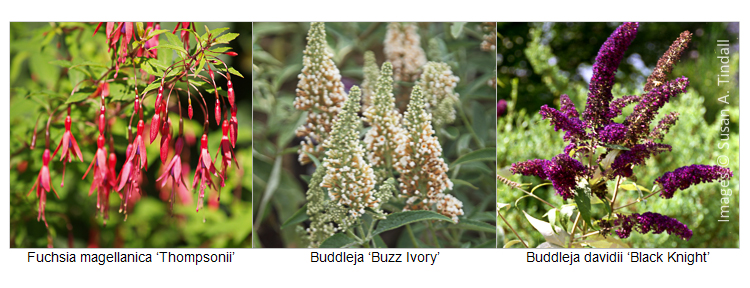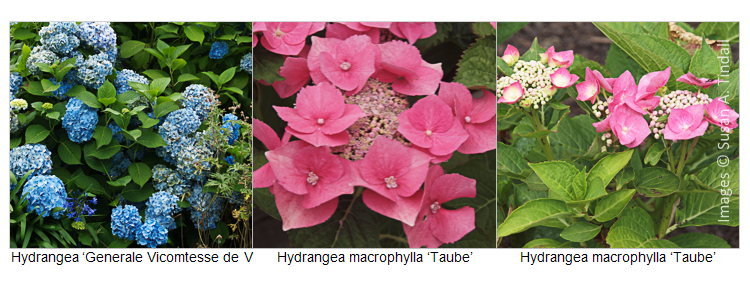It is spring and the online catalogues are full of enticing plants; the fresh colours of spring are irresistible. Virtual baskets are loaded full with plants and expectations. Although it may seem strange, this is the ideal time to cast your thoughts forward to high and late summer, even autumn. Continuity of colour in the garden can be quite hard to achieve and there always seems to be a lull between spring and autumn flowers. The vast majority of shrubs have their floral show in spring. Very few flower later in the season. It is worth keeping a space for these later performers while planting in spring.
Three key types of plant come to mind: Buddlejas, Fuchsias and, of course, Hydrangeas. They may not be available for sale very early in the season, but you can plan ahead and leave a space for them in the garden. Using our Garden for Pleasure Plant Finder you can take a look at the vast range of varieties, find one to match your favourite colours and save it to your ‘My Plants’ list for later. Or print out the plant details as a reminder.
Plan for Buddleja: they like sunshine and well drained soil. They can be 2.5 metres high like Buddleja davidii ‘Black Knight’, or a miniature 1.2 metres like Buddleja ‘Buzz Ivory’. They are loved by butterflies and have flowers in shades of white, pink, red and blue to mauve. They make an imposing feature in the garden.
Plan for Fuchsias: they like sun or part-shade and reasonable moisture levels. They are in flower for a couple of months. Most of them are around 50 cm in height and look good in containers. The magellanica forms can be much larger and make handsome specimens, for example Fuchsia magellanica ‘Thompsonii’. Their flowers are generally in the pink red and purple range.
Plan for Hydrangeas: they generally enjoy a shaded or partially shaded site and some moisture. They too flower for weeks and in many cases their faded flowers are interesting well into the autumn. Many of the older varieties of ‘macrophylla’ hybrids are 1.5 metres high. A range of smaller, showier forms are now becoming available. These may even have shiny black stems that give an exotic twist to their flowers. Hydrangeas have large flowers in shades of white, pink, mauve, red and blue. Their flowers come in two forms, the rounded ‘mopheads’ for example Hydrangea macrophylla ‘Generale Vicomtesse de Vibraye’, and the elegant, rather dome shaped ‘lacecaps’, for example Hydrangea macrophylla ‘Taube’. They have a strong presence in the garden whilst in flower, and can be a major feature.
Then with your ‘My Plants’ shopping list started, there is an excellent excuse later in the season for another shopping trip to our supplier directory to buy the plants you’ve chosen.
Enjoy!
Susan A. Tindall.


